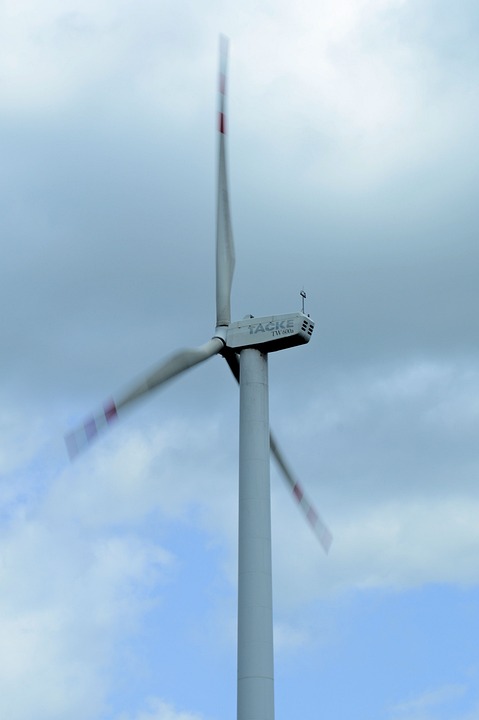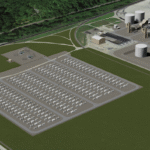Introduction
The way we consume energy is changing. With the increasing pressure on the environment and the rise of renewable energy sources, the world is moving towards a smarter, more efficient way of managing our energy needs. The smart grid is a network of advanced technologies that enables more efficient, reliable, and cost-effective energy delivery, consumption, and management. In this article, we’ll explore how smart grids can reduce energy consumption and costs.
The Current State of the Grid
The traditional grid has been in place for decades, with power generation, transmission, and distribution systems operating independently and separately. However, this system has many limitations. For instance, it’s not designed to accommodate the increasing number of renewable energy sources, nor is it equipped to handle the growing demand for energy.
Challenges with the Traditional Grid
The traditional grid faces several challenges, including:
* Inefficient energy distribution, leading to energy losses and wastage
* Limited ability to integrate renewable energy sources
* High demand for energy, leading to power outages and blackouts
* Limited flexibility and control over energy usage
How Smart Grids Can Help
Smart grids address these challenges by incorporating advanced technologies and real-time monitoring and control systems. Some of the key features of smart grids include:
Advanced Metering Infrastructure (AMI)
AMI systems enable real-time monitoring of energy consumption and transmission. This allows for:
* Accurate billing and rate setting
* Real-time energy consumption monitoring
* Predictive maintenance for energy infrastructure
Smart Appliances and Devices
Smart appliances and devices can be controlled and programmed using smart grid technology. This includes:
* Smart meters for real-time energy consumption monitoring
* Smart thermostats for energy usage optimization
* Smart lighting systems for energy-efficient lighting
Grid Management Systems
Grid management systems enable real-time monitoring and control of the entire energy distribution network. This includes:
* Predictive analytics for energy demand forecasting
* Advanced sensing and monitoring systems
* Advanced fault detection and isolation
The Benefits of Smart Grids
The benefits of smart grids are numerous, including:
Reduced Energy Consumption
Smart grids optimize energy consumption by:
* Encouraging energy efficiency through real-time feedback and monitoring
* Optimizing energy distribution and transmission
* Increasing the use of renewable energy sources
Reduced Costs
Smart grids reduce costs by:
* Optimizing energy distribution and transmission
* Encouraging energy efficiency
* Reducing the need for new infrastructure development
Improved Reliability and Resilience
Smart grids improve reliability and resilience by:
* Enabling real-time monitoring and control
* Predictive maintenance for energy infrastructure
* Advanced sensing and monitoring systems
Challenges and Opportunities for Implementation
Implementing a smart grid is not without its challenges. Some of the key challenges include:
Infrastructure Development
Building a smart grid requires significant investment in infrastructure development, including:
* Upgrading existing infrastructure
* Deploying new technologies and hardware
* Changing existing processes and business models
Social and Cultural Barriers
There may be social and cultural barriers to adopting smart grid technologies, including:
* Consumer resistance to change
* Lack of understanding of smart grid benefits
* Confusion about new technologies
Conclusion
The smart grid is the future of energy management, offering numerous benefits in terms of reduced energy consumption, reduced costs, and improved reliability and resilience. While there are challenges to implementation, the advantages of smart grids make it a worthwhile investment for consumers, utilities, and the environment.
FAQs
Q: What is a smart grid?
A: A smart grid is a network of advanced technologies that enables more efficient, reliable, and cost-effective energy delivery, consumption, and management.
Q: What are the benefits of smart grids?
A: The benefits of smart grids include reduced energy consumption, reduced costs, and improved reliability and resilience.
Q: Is implementation of a smart grid expensive?
A: Yes, implementation of a smart grid can be expensive, requiring significant investment in infrastructure development and technology deployment.
Q: How long does it take to implement a smart grid?
A: The implementation of a smart grid can take several years, depending on the complexity of the project, the number of infrastructure components, and the regulatory environment.





.png?w=150&resize=150,150&ssl=1)

.png?w=150&resize=150,150&ssl=1)